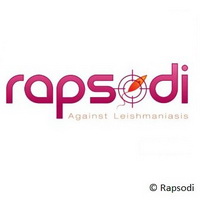New Leishmania vaccine on its way
The European Union is tackling global warming by committing to reducing its energy consumption, promoting renewable energy and using the emission trading scheme. But global warming has brought about another set of problems. Already back in 2007, a chikungunya outbreak occurred in the province of Ravenna, Italy giving rise to an increased concern from health authorities. The risk for reintroduction of some exotic vector-borne diseases in Europe has become a hot topic. Outbreaks of leishmaniasis have recently occurred in all southern countries of Europe, with 700 autochthonous human cases reported each year (3,950 if Turkey is included). Leishmaniasis is a disease that is spread by the bite of the female sandfly. Symptoms of cutaneous leishmaniasis may include: breathing difficulty; skin sores, which may become a skin ulcer; blocked nose, diarrhoea, fever, vomiting, and fatigue to name a few. Death occurs due to other complications by other infections rather than the disease itself. The disease is spread because of several risk factors, climate being only one. Current treatment strategies involve various drugs, the use of which is associated in the development of resistance. Moreover, such treatments are usually quite expensive compared to the actual wealth of the affected nations. To respond to this problem, an international consortium of seven partners made up of countries from endemic areas has addressed this issue via the RAPSODI project. The project is an EU funded project under the 7th Framework Program - HEALTH-2007-2.3.4-2 with the aim to develop a safe and efficient vaccine generating a broadly protecting immune response against most or all leishmania species causing leishmaniasis worldwide. A unique vaccine solution would thus be provided to protect against the various clinical phenotypes (namely visceral, cutaneous and mucocutaneaous leishmaniasis, VL, CL and ML respectively). In addition, the RAPSODI project has proposed to establish all the associated assays required for the subsequent clinical trials, such as the selection of the eligible patients and assessment of vaccine efficacy. Although the human vaccine does not seem ready for the time being, the project has managed to create a common protocol for disease diagnostic, favouring a common vision of the global leishmaniasis problem while considering regional specificities. The project has reinforced the research community, developing countries and scientific capacities within the context of research on vaccine development for leishmaniasis control.For more information, please visit: RAPSODIhttp://www.fp7-rapsodi.eu/48/



